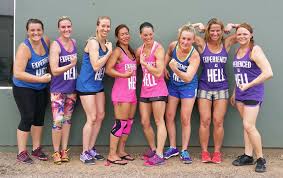
This year’s Senior Olympics will include 10,000 men and women aged from 50 to 100, and begin this Friday in and around Minneapolis-St. Paul, in Minnesota.
In celebration of this event, this post reviews the latest evidence that older athletes can be much younger, physically, than their birth certificate would otherwise suggest, according to a new study of participants in the coming Senior Olympics.
Initially, a study from the Norwegian University of Science and Technology in Trondheim looked at the fitness and health of more than 5,000 Norwegian adults and used the resulting data to create a sophisticated algorithm that could rapidly calculate someone’s aerobic capacity and relative fitness age based on his or her sex, resting heart rate, waist size and exercise routine. They then set up a beguilingly simple online calculator that people could use to determine their fitness age.
Senior Olympians are not professional athletes, but most train frequently, and tend to be more physically active than other people of the same chronological age. To see just how their lifestyle affects their biological age, Dr’s Pamela Peeke and Dr. Ulrick Wisloff asked all of this year’s Senior Olympic qualifiers to complete the Norwegian study’s online calculator. They set up a special, dedicated site for the participants, so that their data could be isolated. (The fitness calculator itself was unchanged.) Many of the participants complied, producing more than 4,200 responses.
The results were impressive. While the athletes’ average chronological age was 68, their average fitness age was 43, a remarkable 25 years less. “This is a massive difference,” Dr. Wisloff says. “I had expected a big difference,” he continued, “since these people have trained for years. However, I was surprised that it was this big.” The effect was similar for both male and female athletes, he pointed out. Virtually every athlete, in fact, had a lower fitness age than his or her chronological age.
Dr. Peeke and Dr. Wisloff have not yet determined whether athletes in certain of the sports at the Senior Olympics, particularly endurance events such as distance running and swimming, have a younger fitness age, in general, than athletes participating in less-vigorous sports.
But they plan to parse the data extensively in the coming months to answer that question and to look for other patterns among the Senior Olympians. They expect to publish their findings soon.
The study found that the athletes’ fitness age is typically 20 years or more younger than their chronological age, providing a clear inspiration to the rest of us to get out and start moving more.

